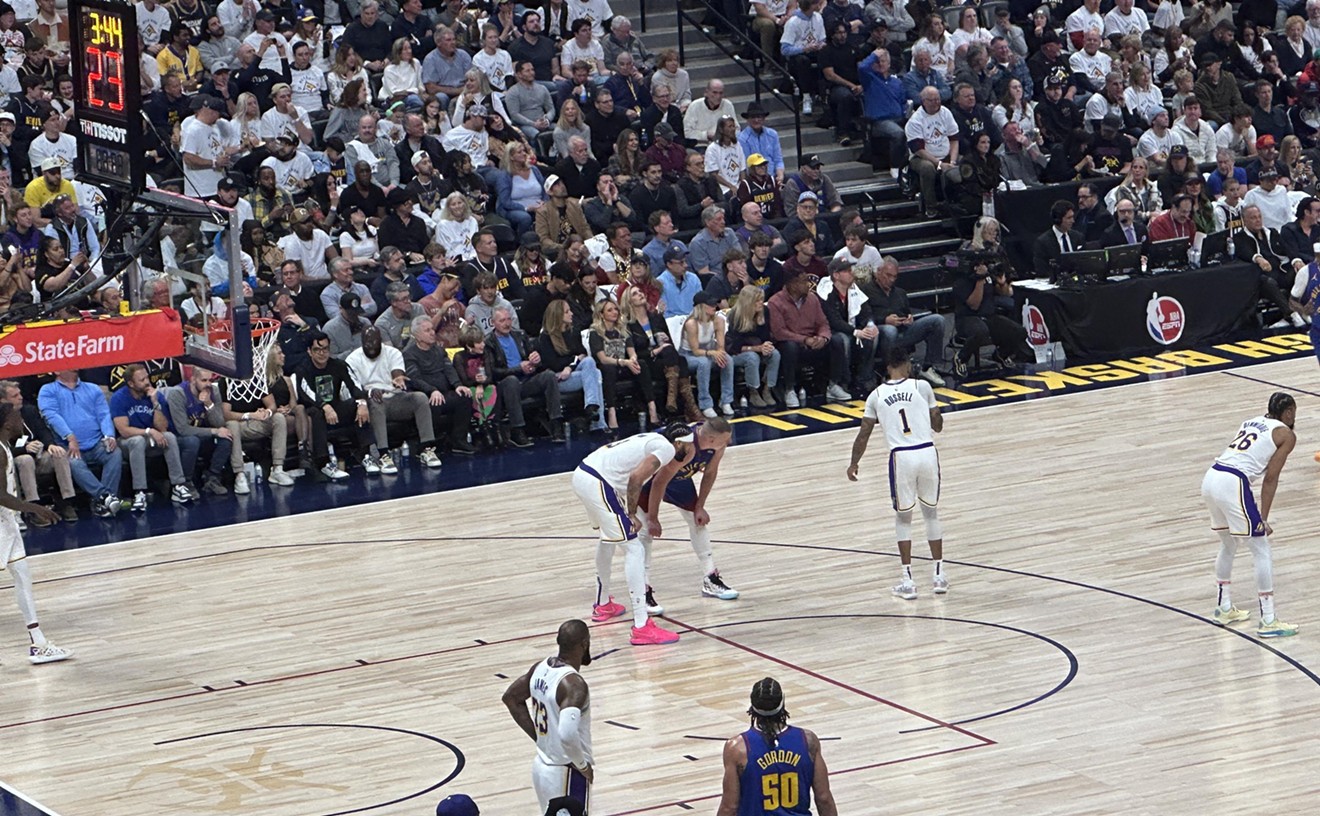After leaving the Post in 2006, Herdy took a position as an investigative producer for 9News before becoming the adviser for the Campus Press, the University of Colorado at Boulder's student newspaper, during a tumultuous period that included a scandal over a satirical article by student Max Karson and the publication's transition to independent status.
Last year, just prior to CU's announcement that it would be dumping its journalism school in favor of a still-undefined new entity, Herdy's contract was not renewed. Today, she stresses that "I have such a soft spot in my heart for all the students. The rest of CU, not so much." But this action gave her the time to finally write the Brents tome -- something that she'd been putting off for years."I began thinking it would be a book a long time ago," she notes. "But I knew it was going to be a huge gorilla to deal with, so I procrastinated."
Not that laziness was the major reason.
"I was loathe to go back there again, because his case was the most horrific one I'd ever covered," she admits. "I had reams of information about it -- thousands of pages of court documents and police reports and hundreds and hundreds of letters from him, and dozens of notebooks filled with interviews with detectives and attorneys and victims. It was an overwhelming amount of material -- and the nature of the material made it something I didn't want to deal with lightly."
Indeed, Brents' crimes were shocking in the extreme. Herdy notes in Diary that "he stalked, raped, and tortured multiple victims" before being captured in February 2005. He subsequently "pleaded guilty to eighty criminal charges, including sexual assault, kidnapping, and attempted murder, and in July 2005 received the largest sentence in Colorado history: 1,509 years."
Through this period and beyond, Brents corresponded with Herdy, sharing details about a childhood filled with abuse even as he attempted to deepen his relationship with her -- efforts that ultimately led to him dubbing her "Rockstar" and issuing declarations of love that made her notably uncomfortable. The result is a highly unusual, totally uncategorizable dynamic that evolves through a series of letters Herdy shares in their entirety. In addition, Brents writes a brief introduction to the book, encouraging readers to consider its revelations with an open mind.
The back and forth between Brents and Herdy is key -- but the Post omitted her side of the conversation when publishing excerpts from his notes. The resulting piece hung Herdy out to dry, as I wrote in "Yours Truly," a July 21, 2005 column. According to Herdy, the column, which is excerpted in the book, prompted one editor to concede this fact -- an acknowledgment that she calls "the closest thing to an apology I would get."
By the way, Herdy also shares a background conversation she and I had prior to the publication of the column, casting me in a positive light very different from an earlier passage. In that section, she portrays me as a gossip-mongering stock villain for asking for her to comment on a tip I'd received from a credible source that she was dating controversial former CU professor Ward Churchill, who was much in the news at the time. She denied doing so in the strongest terms, and I never published anything about the unfounded rumor.
Herdy's even tougher on many of her editors at the Post. She doesn't mention them by name, in part because many of them no longer work at the newspaper. But she depicts several as so frantic about the broadsheet's competition with the now-defunct Rocky Mountain News (despite the joint-operating agreement then linking their business operations) that it undermined their judgment. She felt pressured to sensationalize her reporting about Brents well beyond her comfort level and publish comments he'd clearly designated as off the record.And when she was out of town, one editor went through her mail and opened a letter from Brents. Herdy was incensed, and she became even angrier when the editor announced that an agreement she'd made not to publish anything Brents wrote until after he was sentenced might be disregarded. She quotes him as saying, "If he sends something worth printing, all bets are off."
The structure of the narrative made including these battles necessary, Herdy believes -- and worries about her newspapering future didn't dissuade her from doing so. "There's an unwritten rule in journalism that thou shalt not reveal secrets of dysfunctional newsrooms," she says. "If you want to go back to work in journalism, you don't talk about what happened there, because it's an incestuous business -- it's still small in that regard. But I don't intend to go back into a newsroom. So I had the freedom of being able to be honest about the good, the bad and the ugly."
Thus far, Herdy's gotten good feedback from the Post rank and file about her account. As for those editors, well, she hasn't been in contact with them -- "but there's nothing in there I didn't say to [Post editor] Greg Moore before I left."
When Herdy was planning to write Predator in a more conventional, true-crime-genre manner, she got interest from assorted publishers. But as the project shifted, she decided it was more important to present the work in the form she wanted rather than risk having it changed for the worse -- so she created her own company, Vincent Publishing House, to make it available digitally. (A print edition should be out in three months.) Former students with social media expertise have gladly signed on to help spread the word about it.
In the meantime, Herdy is working as a book editor at another publishing company and taking satisfaction in sharing Diary with readers.
"This was a story I felt compelled to tell," she says, "because there were truths that deserved to be told."
More from our Media archive: "Campus Press advisor Amy Herdy's Pakistan travel log."











